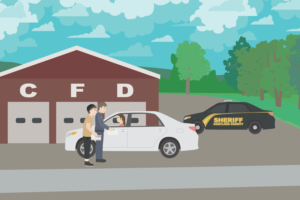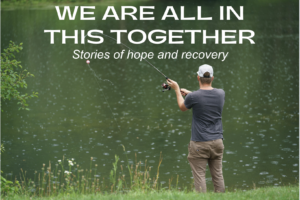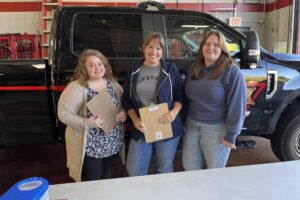Healing Cortland Launches Health Communications Campaign Focused on Naloxone (Narcan) and Fentanyl Awareness
According to the CDC’s National Center for Health Statistics, there were over 100,000 drug overdose deaths in the U.S. from April 2020-April 2021. The rising death rate represents an increase of 28.5% from the prior year. In Cortland County alone, there were 16 opioid-related overdose deaths in 2021, up from 8 in 2020. All 16 overdose deaths last year had fentanyl present.
Cortland County has funding from the National Institutes of Health (NIH) to run a public health communications campaign about naloxone (Narcan®) and fentanyl awareness. It will run through October and November, and we hope that this campaign will reach people who use opioids as well as those who don’t.
This communications campaign will educate people about opioid overdose, naloxone, and fentanyl. We hope that we will help people understand that:
- Many drugs can be contaminated with illicit fentanyl, and that fentanyl contamination is dangerous, even in small doses
- There is no evidence that touching fentanyl can cause overdose and medical experts agree overdose from fentanyl-skin contact is a “medical impossibility.”
- Opioid overdoses are more likely to be fatal when no one else is present, able to respond, rescue with naloxone, and call 911 for help
- Naloxone–and FDA-approved medication–can reverse overdoses and save lives, and anyone can carry it and use it
- Naloxone trainings are available in their community which provides free naloxone and training on how to use it
- Harm reduction strategies can reduce the risk of fatal overdose
If you or your agency want to get be a part of this campaign, you can contact us directly or learn more HERE.
There are steps you can take to protect yourself or a loved one from overdose
Some strategies that have been shown to reduce the risk of fatal overdose include:
- Go slow so that you can tell if you’re responding differently to what you’re using
- Never use alone and stagger use so that someone can respond if you overdose
- You can also call a friend or call the Never Use Alone hotline: 1 (800) 997-2280 or 1 (800) 928-5330 for Spanish speakers
- Have naloxone (Narcan®) on hand; know how to use it and where to get more
- You can get naloxone from the Family and Children’s Counseling Services’ COTI Mobile Team (607-753-0234), Southern Tier AIDS Program Mobile Unit (607-725-6335 or 607-725-6847), Healing Hearts Collaborative (607-283-6378), or many pharmacies (at little or no cost, if you have prescription insurance coverage)
Healing Cortland is a local community effort to reduce opioid overdose deaths
The Healing Cortland Project brings together a broad group of local partners–service agencies, law enforcement, legislators, and community members with personal lived experience of substance use–to use local data about overdoses to select strategies that have been proven to reduce the rates of fatal overdose. This effort is currently funded by the National Institutes of Health (NIH) as part of the HEALing Communities Study. We are also working to improve the availability of services for people who use drugs. The National Survey on Drug Use and Health (NSDUH) estimates that 2.1 million Americans have opioid use disorder, yet fewer than 20% of those receive specialty care in a given year. As a result, the HEALing Communities Study (HCS) was launched to identify the strategies supported by research that are most effective at the local level in preventing and treating opioid use disorder (OUD). The goal of the study is to reduce opioid-related overdose deaths by 40 percent.
Commenting on the collaboration that this project is built on, Communications Champion Ashley Dickson said:
“Cortland has this beautiful capacity to come together and care for each other. This project and the partners that we are working with are ready and willing to make a difference for the people in our community. Starting with education and communications to reduce overdose deaths, I think we can create a Cortland that is happy, healthy, and safe for everyone.”
Our campaign partners currently include: CACTC, Cortland County, Cortland Free Library, Family & Children’s Counseling Services including two of its divisions- Cortland Prevention Resources & Cortland LBGTQ Center, Guthrie Cortland Medical Center, Healing Hearts Collaborative, Tompkins Cortland Community College Special Populations Coalition, and more.
Learn More:
- For a complete list of local Narcan Resources, visit healingcortland.org/narcan
- To stay up to date with Healing Cortland and hear about upcoming Narcan trainings, visit our Facebook Page: facebook.com/healingcortland
- Partners who want to get involved can find materials on our Communications Hub: sites.google.com/cortlandareactc.org/hcs-communications-hub/home
Campaign Contacts:
- Ashley Dickson, Healing Cortland Communications Champion, adickson@cortlandareactc.org
- Aster Parrott, Healing Cortland Community Engagement Coordinator, aparrott@cortlandareactc.org or (607) 218-5488 (call or text)





